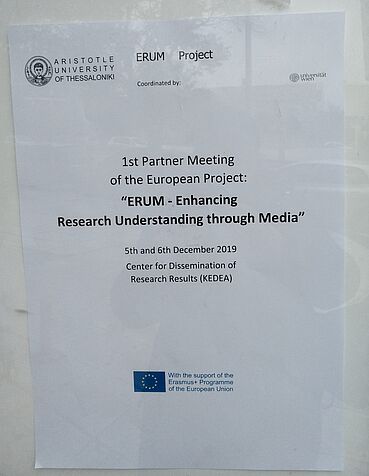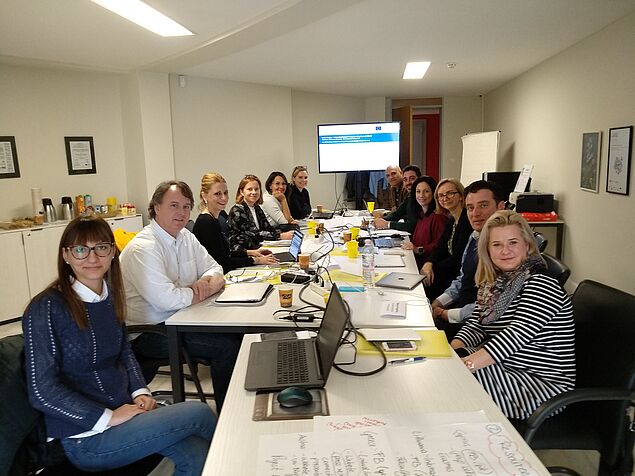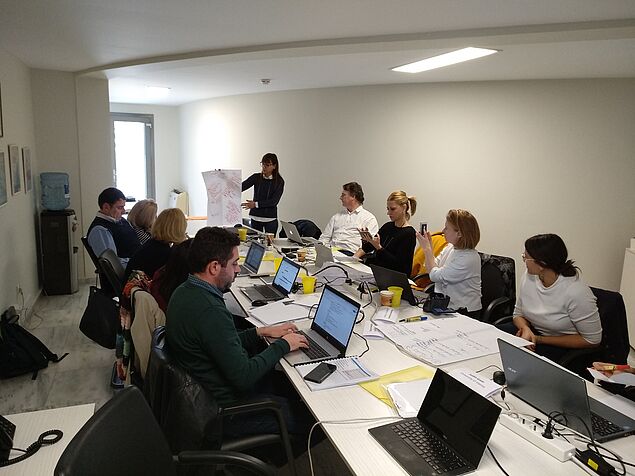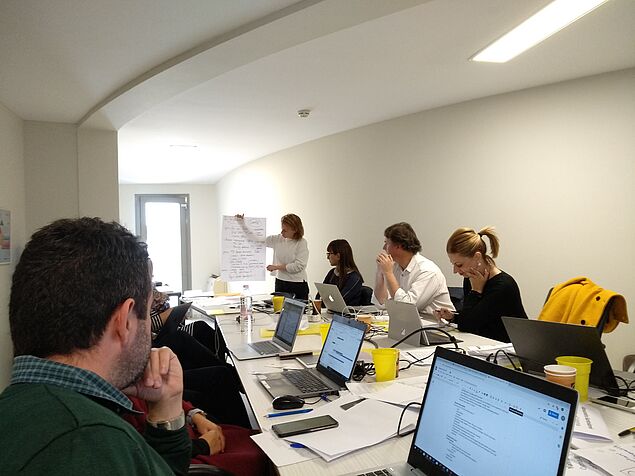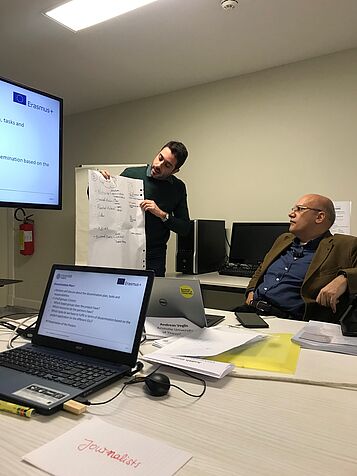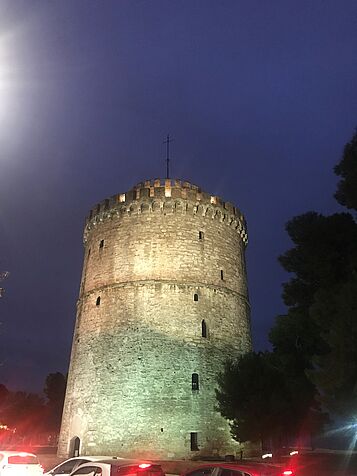Completed projects
back to overview
ERUM - Enhancing Research Understanding through Media


The context of this project is two-folded and aligned to the European Commission’s priorities. On the one hand, it addresses the need for the development of the students' key competences for socio-educational and personal development and on the other hand, the need for an increased relevance of the educational offer of HEIs in line with structured dialogue between academia and business.
The ERUM project aims to develop a relevant transversal educational offer on the topic of “quality of information between mis and disinformation today” for higher education students who are partaking in the shaping of the present and future of the information and knowledge society. It also brings about a shift in the way higher education institutions and media are collaborating vis-a-vis evidence-based and research communication.
The core objectives of the project lie in the quality of information today, between mis- and disinformation or so-called “fake news”:
- To improve the educational offer on the topic of quality of information in higher education and equip students with transversal skills that are necessary for the exercise of democratic citizenship
- To foster structured collaboration between higher education and media and contribute to the policy discussion about the role of universities and media in the knowledge and information society
- Improve the quality of information with regards to research-based communication
These objectives are translated into four main outcomes namely, media representation gaps reports and evaluation methodology to debunk and raise awareness about the impact of mis/disinformation, guidelines for evidence-based communication to reduce risk of misleading scientific information, learning material to develop media literacy skills and deepen knowledge about “fake news” as well as policy recommendations to foster structured academia-media cooperation. The training activities (intensive study programmes) will further the impact of the abovementioned outputs towards higher education students, academics and media experts and pilots in the HEI partners as well as OERs of the learning material will enable proper implementation.
The specific target groups to be reached by the project activities are a) higher education students, in particular postgraduates, as well as lifelong learners; b) higher education institutions targeting both teachers and researchers; c) media organisations, including general and scientific journalists; d) policy-makers and civil society organisations. It is to be noted that the project ERUM focuses on, but is not limited to, higher education students who are postgraduates since they have already accomplished research work and are familiar with the concept of evidence-based communication, therefore, they would be able to apply the methodologies, and relevant recommendations as well as gain additional knowledge from the courses.
The project aims to have a systemic impact across EU higher education institutions and the media industry with about 2000 people reached both directly through the project outcomes and piloting and indirectly. At short and mid-term, higher education students from different study fields will benefit from advanced learning tools and material to develop and reinforce their skills and resilience related to the mis/disinformation topic. At long-term, the project will enable the establishment of structured collaboration between media and academia on a structural systemic level.
| Project period | [11/2019] – [05/2022] |
| Funding | Erasmus+ |
| Website | Website des Projekts |
Further information
Project staff
Partnership
- Technologiko Panepistimio Kyprou (Cyprus)
- Vytauto Didziojo Universitetas (Lithuania)
- European University Foundation - Campus Europae (Luxembourg)
- Aristotelio Panepistimio Thessalonikis (Greece)
- Universite de Versailles Saint-Qentin-En-Yvelines (France)
- Universidad de Alcala (Spain)
Contact
Impressions from the project
Downloads: Partners met for the first time in Thessaloniki in December 2019
Downloads: Newsletters
File size: 758 kB
File size: 0.9 MB
File size: 484 kB
Downloads: Report: Controversial topics represented in media
File size: 1.0 MB
File size: 751 kB
File size: 1.5 MB
File size: 768 kB
File size: 1.8 MB
File size: 1.3 MB
Downloads: Guidelines for evidence-based communication
File size: 1.6 MB

